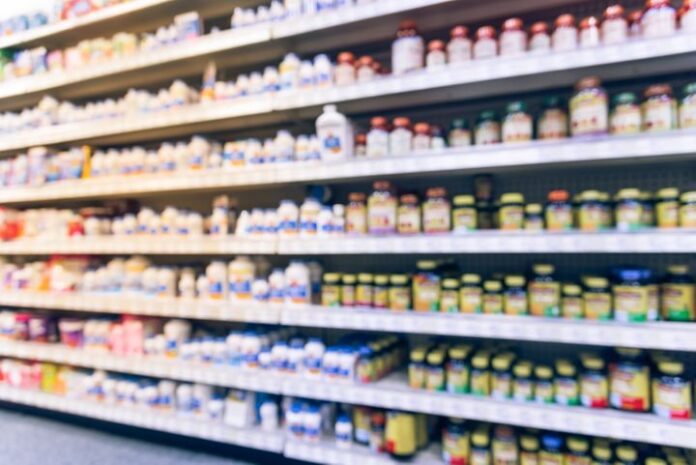The earliest evidence of plants used for healing purposes by human beings dates back to the Neanderthal period. This enormous knowledge and experience of man to identify and apply healing herbs in the form of medicines to promote health has been accumulated over a period of centuries. This rich resource of information is readily available now for ongoing and future modern scientific research works in the field of medicine. According to the World Health Organisation, about 70 to 80% of the world’s population relies on plant-based medicine, or herbal products, for their primary healthcare. The inclination towards treatment with complementary and alternative medicine is mainly due to increased side effects related to synthetic drugs, the lack of holistic approach for several chronic diseases in modern medicine, high medicine and hospital expenses, microbial resistance and emerging diseases.
Indian Market for Herbal/Ayurveda Products
In India, about 80% of rural population uses medicinal herbs, Ayurvedic medicines or indigenous health practices for most of their ailments. It is estimated that nearly 960 plant species are used by the Indian herbal industry. Herbal exports include medicines of AYUSH (Ayurveda, Yoga & Naturopathy, Unani, Siddha and Homoeopathy) products, which occupy a share of 3% of total pharmaceutical exports. 70% of the herbal sector consists of largely raw materials and 30% of the export includes finished products.
The Indian plant extract market is showing an astonishing growth as there has been a shift in universal trend from chemical based medicines to herbal based ones. Due to its wide range of medicinal and aromatic uses, the plant extract market is expected to grow at a CAGR of around 17% between 2018 and 2023. The current valuation of the Indian herbal market is at Rs 5000 crore.
Exponential Growth of Herbal Medicines during COVID-19 Pandemic
Sales of immunity boosting foods, minerals, herbal medicines have shot up by an estimated 20 to 40%. Online searches for such products have multiplied six fold with Ayurvedic home remedies, Giloy and vitamin C. ‘Dabur India Limited’ which sells Chyawanprash and honey reported a 400% surge in demand for its Chaywanprash and 80% growth in Dabur honey. “There is spike in demand for magnesium supplements and energy drinks” said Varun Khanna, CMO and co-founder of Fast & Up. The Coronavirus outbreak has lead to renewed focus on staying fit and healthy. People are warming up to the idea of improving immunity to avoid catching any infection. Seeing these kinds of trends, companies have been quick to capitalise on this idea of immunity boosters. Some organisations, popular Ayurveda pharmaceutical companies and companies manufacturing herbal medicines have even claimed a cure for Coronavirus. On the other hand, some herbal industries are claiming to have immunity-boosting products which will help to fight against the Coronavirus.
Also Read: An Ayurvedic Perspective of Immunity
The ministry of AYUSH has issued more than one advisory on herbal and non herbal preparations that can boost immunity. The ministry has also issued statutory clearance for Ayurveda, Siddha and Unani drugs in an effort to promote immunity boosting products for healthy people. The AYUSH ministry said that it is necessary to generate clinical data which is scientifically valid and credible while undertaking the research. It is mandatory for all organisations to comply with the conditions listed in the AYUSH gazette notification dated 21st April 2020.
Yet, how many products, already on the market as immunity boosters or cures for Coronavirus, have followed the guidelines while undertaking research? This is an important question to be asked not only by consumers but also by the concerned authorities. The AYUSH ministry and concerned authorities in India should pay close attention to health-related claims of foods, mineral supplements, and herbs that falsely claim to be the cure or preventive care for Coronavirus. They should take all necessary steps to stop even the smallest bit of misinformation or false claims to spread among the public.
International Collaboration of Ayurveda Practitioners
Indian ambassador to the United States, Taranjit Singh Sandhu said that, “A group of eminent Indian-American scientists, academicians and Ayurveda doctors are planning to initiate joint clinical trials for Ayurveda formulations against novel Coronavirus”. This is indeed great news for Ayurveda practitioners all over the world.
The Indian herbal market can improve its stake at global business platform by international cooperation and pooling of research data from different parts of the world. It can also improve the study design of clinical studies to establish herbal drug safety for therapeutic use, while taking into account the basic difference between Ayurveda and modern science when designing the research protocols. The role of genetic engineering should be emphasized as this will play an important role in saving the medicinal plants which are endangered or threatened with extinction.
The government should also actively take part in preparing a road map for the progressive development of Ayurveda education and research. As the demand for herbal products is increasing by the day, procuring enough raw materials at a reasonable price is a big challenge faced by many herbal medicine manufacturing industries. Strict action must be taken by the government to fulfill the market demand. In order to meet this growing demand for medicinal plants, herbal agriculture or farming of medicinal plants should be encouraged.
Last but not least, the principles of ecological ethics should be upheld by preserving biodiversity while utilizing natural resources for drug discovery. The philosophical significance of sustainable development should be emphasized in the process of herbal medicine discovery, research and development. As Mahatma Gandhi rightly said, “Earth provides enough to satisfy every man’s needs, but not every man’s greed”. Man does not have the right to wipe out any species, whether plants or animals, arbitrarily for his own benefits as man is just one of the residents of earth.
Dr.Manasa is an Ayurvedic practitioner based in Bangalore. Views are personal.






























